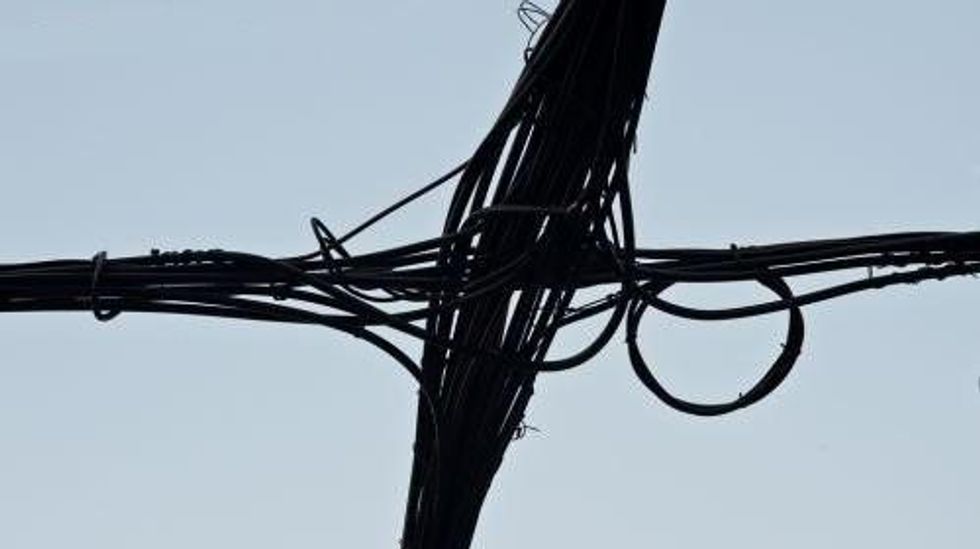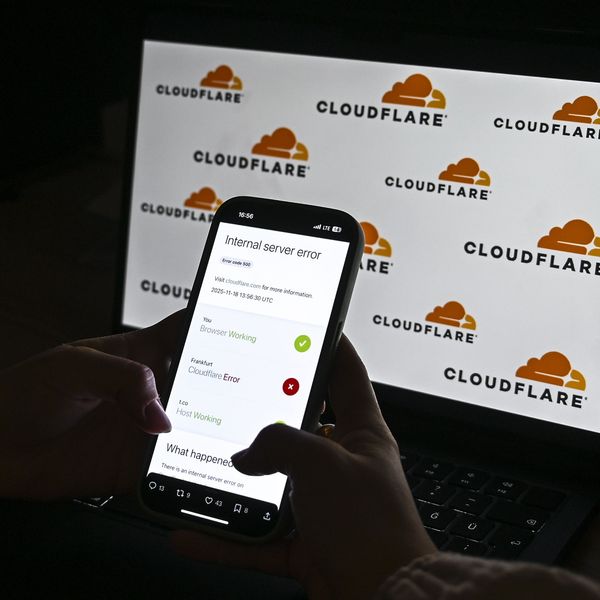The Internet You Know and Love is in Danger
Net neutrality - the principle that Internet Service Providers (ISPs) must treat all data on the Internet equally - is vital to free speech. But earlier this month, the D.C.

The court ruled that for the FCC to preserve net neutrality, it must first reclassify the Internet as a "common carrier" - a term used to describe a utility like plain-old telephone service or an electric company - so that it can be subject to particular government regulations. Today we delivered a petition with more than 1 million signatures calling on them to do just that.
Without strong net neutrality rules, an ISP can interfere with a user's access to content online - that could mean, for example, blocking controversial content or discriminating against a competitor's site. We've seen it happen before. In 2007, Verizon Wireless blocked text messages from the reproductive rights group NARAL. That same year, Comcast was caught discriminating against an entire class of online activities by limiting file transfers from customers using popular peer-to-peer networks such as BitTorrent, eDonkey, and Gnutella.
Net neutrality has benefits beyond free speech, too: It also promotes innovation by guaranteeing small startups have the same visibility and access as established corporations, a principle that allowed companies like Google and Amazon to compete when they began.
Following the ruling, the ACLU, along with Free Press, Common Cause, DailyKos, Fight for the Future, Sierra Club, and others sent out petitions calling for the FCC to reclassify the Internet and reinstate their net neutrality rules. We delivered the signatures this week.
Right now, most Americans have very few options when it comes to high-quality broadband service, so we can't just decide to vote with our feet if a company violates "net neutrality." Accordingly, our broadband providers have the technical means and the financial incentives to block or slow down controversial content or their competitors, or to give established players who can afford to pay for the privilege an Internet "fast lane." Additionally, because the companies have to monitor your online activity in order to manipulate the data, the lack of neutrality rules raises profound privacy issues. Let's hope the FCC moves quickly to safeguard the Internet and assure it remains open and free.
An Urgent Message From Our Co-Founder
Dear Common Dreams reader, The U.S. is on a fast track to authoritarianism like nothing I've ever seen. Meanwhile, corporate news outlets are utterly capitulating to Trump, twisting their coverage to avoid drawing his ire while lining up to stuff cash in his pockets. That's why I believe that Common Dreams is doing the best and most consequential reporting that we've ever done. Our small but mighty team is a progressive reporting powerhouse, covering the news every day that the corporate media never will. Our mission has always been simple: To inform. To inspire. And to ignite change for the common good. Now here's the key piece that I want all our readers to understand: None of this would be possible without your financial support. That's not just some fundraising cliche. It's the absolute and literal truth. We don't accept corporate advertising and never will. We don't have a paywall because we don't think people should be blocked from critical news based on their ability to pay. Everything we do is funded by the donations of readers like you. Will you donate now to help power the nonprofit, independent reporting of Common Dreams? Thank you for being a vital member of our community. Together, we can keep independent journalism alive when it’s needed most. - Craig Brown, Co-founder |

The court ruled that for the FCC to preserve net neutrality, it must first reclassify the Internet as a "common carrier" - a term used to describe a utility like plain-old telephone service or an electric company - so that it can be subject to particular government regulations. Today we delivered a petition with more than 1 million signatures calling on them to do just that.
Without strong net neutrality rules, an ISP can interfere with a user's access to content online - that could mean, for example, blocking controversial content or discriminating against a competitor's site. We've seen it happen before. In 2007, Verizon Wireless blocked text messages from the reproductive rights group NARAL. That same year, Comcast was caught discriminating against an entire class of online activities by limiting file transfers from customers using popular peer-to-peer networks such as BitTorrent, eDonkey, and Gnutella.
Net neutrality has benefits beyond free speech, too: It also promotes innovation by guaranteeing small startups have the same visibility and access as established corporations, a principle that allowed companies like Google and Amazon to compete when they began.
Following the ruling, the ACLU, along with Free Press, Common Cause, DailyKos, Fight for the Future, Sierra Club, and others sent out petitions calling for the FCC to reclassify the Internet and reinstate their net neutrality rules. We delivered the signatures this week.
Right now, most Americans have very few options when it comes to high-quality broadband service, so we can't just decide to vote with our feet if a company violates "net neutrality." Accordingly, our broadband providers have the technical means and the financial incentives to block or slow down controversial content or their competitors, or to give established players who can afford to pay for the privilege an Internet "fast lane." Additionally, because the companies have to monitor your online activity in order to manipulate the data, the lack of neutrality rules raises profound privacy issues. Let's hope the FCC moves quickly to safeguard the Internet and assure it remains open and free.

The court ruled that for the FCC to preserve net neutrality, it must first reclassify the Internet as a "common carrier" - a term used to describe a utility like plain-old telephone service or an electric company - so that it can be subject to particular government regulations. Today we delivered a petition with more than 1 million signatures calling on them to do just that.
Without strong net neutrality rules, an ISP can interfere with a user's access to content online - that could mean, for example, blocking controversial content or discriminating against a competitor's site. We've seen it happen before. In 2007, Verizon Wireless blocked text messages from the reproductive rights group NARAL. That same year, Comcast was caught discriminating against an entire class of online activities by limiting file transfers from customers using popular peer-to-peer networks such as BitTorrent, eDonkey, and Gnutella.
Net neutrality has benefits beyond free speech, too: It also promotes innovation by guaranteeing small startups have the same visibility and access as established corporations, a principle that allowed companies like Google and Amazon to compete when they began.
Following the ruling, the ACLU, along with Free Press, Common Cause, DailyKos, Fight for the Future, Sierra Club, and others sent out petitions calling for the FCC to reclassify the Internet and reinstate their net neutrality rules. We delivered the signatures this week.
Right now, most Americans have very few options when it comes to high-quality broadband service, so we can't just decide to vote with our feet if a company violates "net neutrality." Accordingly, our broadband providers have the technical means and the financial incentives to block or slow down controversial content or their competitors, or to give established players who can afford to pay for the privilege an Internet "fast lane." Additionally, because the companies have to monitor your online activity in order to manipulate the data, the lack of neutrality rules raises profound privacy issues. Let's hope the FCC moves quickly to safeguard the Internet and assure it remains open and free.

